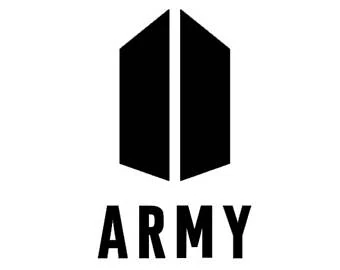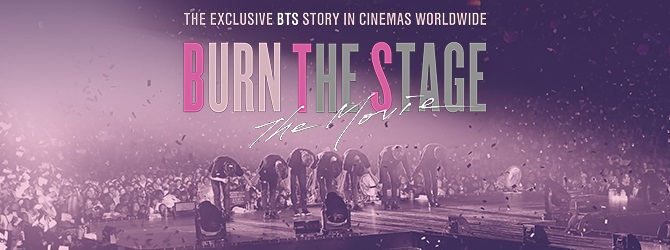If you follow me on Twitter, you may know that I already watched the BTS film Burn the Stage on the day it opened. But I read a review that said, as a non-fan, it felt like a film made for existing fans instead of being a good introduction for newcomers, so this post is for my mom and sister who are going to go see it with me later this week. It will be my second viewing, but their first. I figured I’d write a few quick FAQs and then include some videos to watch so they can skim quickly to get up to speed.
Ladies, this post is your homework before the movie so you will hopefully enjoy it more!
The Quick FAQ
Q: What does BTS mean?
BTS stands for their name in Korean - 방탄소년단 – in English, Bangtan Sonyeondan, which translates to “bulletproof boyscouts”. You can watch the first minute or so of this video to get the pronunciation down.
Q: What does “bulletproof boyscouts” mean?
I don’t want to re-write the whole BTS Wikipedia page, but from what I’ve gathered, the idea when they formed was to create a group that would be a “shield” for young people from the “bullets” (criticisms) of the older generation. They later said it also can mean “Beyond the Scene” in English, but most fans I know hate that anglicized name.
All things considered, they do a pretty good job of living up to the boyscouts image, at least publicly.
Q: Why are BTS fans called ARMY?

ARMY stands for Adorable Representative MC for Youth. The band’s leader has said to think of it as the ARMY of young people behind them. The most important thing to know is that the plural of ARMY is ARMYs (no apostrophe!), and it is (maybe?) the largest fandom in the world. Certainly the largest active fandom on social media, and truly global in scope.
Q: What is Burn the Stage about?

Burn the Stage is a documentary film of behind the scenes footage from their 2017 Wings global tour, interspersed with some clips and footage from various TV programs and award shows they’ve been on. 2017 was arguably the year they truly scaled to a global level, and they broke a lot of records, so the film gives you a look at what it was really like to be in that intense spotlight.
Q: Who are the Members?
There’s 7 of them, and they have stage names in addition to their Korean names, and that can be a little confusing at first. Also, don’t try to learn who they are by their hair color, because they change that every other day and twice on Sundays.
Why to Love BTS
The obvious answer is their music. I’ve listed some of their hit songs below so you can skim through those, but the maybe less obvious reason is because of their ethos. Â
As the members have matured, and their global influence has increased, they’ve taken on the role of being unofficial ambassadors for Korea, and official ambassadors for UNICEF’s campaign to #ENDVIOLENCE. They make charitable donations, they speak out about issues that are absolutely taboo in Korea like mental health, depression, LGBTQ issues, and more. They aren’t saints, and they’ve done dumb stuff in the past, but generally speaking, they are a bunch of young guys trying to learn how to live meaningful, good lives while making good music. What’s not to love?
And maybe more importantly to me, to be a member of ARMY means embracing BTS -AND- their global fandom. It’s the opposite of Trump’s horrible nationalism to engage in dialogue with fans from every continent and every language and every ethnicity about a shared love of “our boys”. It’s still hard to describe how awesome it is to be a part of a TRULY diverse audience of thousands of people and feel 100% welcomed.
The Music
BTS is a boy band from Korea, so I guess you could classify them with the generic K-pop label, but I think they defy genre labels because musically they are all over the map. They have a lot of hit songs that are 100% pure pop, but their more recent albums are full of non-pop sounding stuff.
You don’t have to listen to/watch all these videos, just skim through and listen to the ones that sound interesting.
I couldn’t figure out how else to do this other than to go chronologically through their biggest hits, but if you want to skip ahead, I have a section of my favorites, even if they aren’t as popular.
Also, most of their music is in Korean, with some English phrases, so I suggest that you turn on Closed Captions on YouTube and set to English for mostly reasonable translations. If it isn’t captioned in English, don’t bother with the auto-caption translation, it’s terrible.
Early Stuff
Their first few albums could be summed up as “school sucks” and “boy-loves-girl” type stuff, although to be fair, they were pretty young (15-22 yrs old I think). And the Korean school system is apparently WAY intense compared to American schools. I guess it’s common for parents to send their kids to cram schools after regular school, so kids might be in school until 8 or 9PM or something crazy like that. Here are a few representative songs.
NO is about the rigid educational system that makes kids like robots cramming information in their brains but having no joy and no dreams in their childhood.
War of Hormone makes me laugh, it could only be written by lusty teen-age boys. They’ve since apologized for not being more sensitive to women in some of their earlier songs. They’re in their mid- to late- 20s now, so they’ve grown up a lot since then, but I include it anyway as an example of an early work.
Dope came a couple years later, and talks about how they are busting their ass working in the studio and dance practice room while all their friends are out clubbing and having fun. This is the second BTS song I came across and Jimin’s dancing (the one with red hair in this video) is what made me Google them to find out who the heck they were. I love the choreography in this one.
The Songs that Started to Make Them Famous
They started to gain real traction in 2016-17. Blood, Sweat, & Tears is pure art, IMO. It’s full of visual literary references about temptation, overindulgence, and evil.
Spring Day is one of my favorites and I think one of their most beloved songs the world over, it’s about missing someone you love dearly and waiting for that spring day when you’ll be together again. I’ve read that it was written after the South Korean Sewol Ferry tragedy in 2014, where over 300 people died when the ferry sank, many of them students. It’s a sad story. 🙁
Save Me is the first BTS song I heard that hooked me. I listened to it on repeat for like a week or something.
The Big Radio Hits
Their biggest hits are mostly EDM (electronic dance music, madre), these are songs you might even hear on American radio stations.
First up is Mic Drop, inspired by President Obama’s famous mic drop. It’s a response to their “haters” who said they sucked and would never make it big.
Fire is straight up club music to jump up and down and dance to. I like it for house cleaning music.
Next up is DNA, a pure pop dance song about that trippy crazy magical phase of being in love. It’s from the Love Yourself: Her album, which is part of a three-part cycle of albums, sort of like a rock opera. Love Yourself: Her is part 1, the falling in love/being in love part of the story.
Fake Love is next, it’s from the second album in the cycle, Love Yourself: Tear, which is the falling out of love/breaking up/realizing love isn’t like the fairytale part of the story.
And last is Idol, from the third album in the cycle, Love Yourself: Answer, which has the theme of knowing yourself/you must learn to love yourself before you can love anyone else. The video is crazy, Mother probably won’t like it visually because it’s too meme-like, but musically it’s very interesting because it has a lot of traditional Korean elements and borrows some African rhythms too.
My Other Favorites
Baepsae is one of their more political songs (so of course I like it) criticizing the wealthy older generation who don’t appreciate how hard it is to make it as a young person these days. Baepsae translates to “crow tit” in English, a small bird. It’s a reference in Korean that’s sort of the opposite of being born with a silver spoon. So a baepsae might be someone born poor trying too hard to make it. Yeah, something like that.
So far I’ve only included official music videos, but I love this video of their dance practice, because the choreography is fun and they get a little silly at the end. 🙂
Lie is one of my favorite solos. This is a fan-made video showing a split screen of Jimin dancing to his solo song, on the left is a performance from a concert, and on the right is filming the short film for the song’s official release. The music, the singing, and the dancing are all just beautiful, and Jimin is my favorite.
It doesn’t have captions, but this is the translation of the chorus, for reference:
Caught in a lie
Find me when I was pure
I can’t be free from this lie
Give me back my smile
Caught in a lie
Pull me from this hell
I can’t be free from this pain
Save me, I am being punished
(Also at times the screen goes black, stay with it..)
I have a bunch more favorite songs, but I’ve run out of time to work on this post so I’m just gonna post it. No worries if you don’t have time to watch/read the whole thing, but hopefully it helps a little so you can enjoy the documentary more!
Looking forward to our movie night, thanks for going with me! xoxoxo